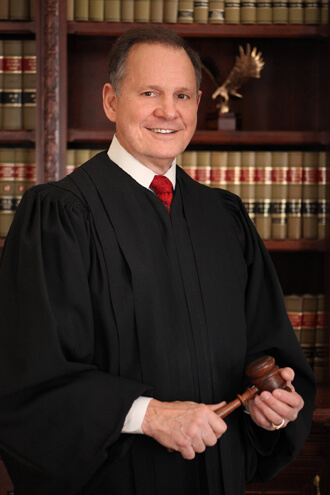Lambda Legal’s Susan Sommer. | LAMBDA LEGAL
In one of two significant legal developments regarding challenges to Mississippi’s notorious HB 1523, which enshrines in state law a special privilege for people claiming religious and moral objections to LGBTQ people to discriminate against them, Lambda Legal has announced it will petition the Supreme Court on whether the Fifth Circuit Court of Appeals erred in dismissing the case on the ground that the plaintiffs lacked standing prior to the new law taking effect.
And, Roberta Kaplan, the civil rights litigator who represented the late Edie Windsor in her victorious challenge to the federal Defense of Marriage Act, won agreement from the federal district court judge who originally ordered marriage equality in that state to reopen the case to consider whether that decision’s requirements are violated by the new law.
Mississippi enacted HB 1523 in 2016. The measure offers legal immunity to people who claim their religious or moral convictions require them to oppose same-sex marriage and sexual relations outside of different-sex marriages and to reject the fact that a person could have a gender identity different from their “biological sex” designation at birth. Individuals claiming such religious or moral objections are immunized from any “discriminatory” action by the state government, and public employees responsible for issuing marriage licenses can decline to do so for same-sex couples (provided there is somebody in the clerk’s office willing to process the license application), religious organizations enjoy broad exemptions from complying with anti-discrimination laws, health care providers may withhold services, and businesses that provide wedding-related goods and services can refuse to deal with same-sex couples.
Lambda presses question of plaintiffs’ standing, while Roberta Kaplan forces reopening of 2014 state marriage case
The measure also includes a “bathroom bill” provision that protects entities that require transgender people to use bathrooms consistent with their birth certificate gender designation, and prohibits the state from taking adverse action against a public employee for expressing views consistent with those specially protected by the statute.
Mississippi’s anti-discrimination laws do not prohibit sexual orientation or gender identity discrimination, but at least two municipal ordinances containing such prohibitions would be preempted by the state law. And, given pending litigation elsewhere in the country, some federal anti-discrimination laws (in particular, Title IX of the Education Amendments of 1972 and the Title VII employment protections of the 1964 Civil Rights Act) may apply in some of the situations covered by HB 1523.
Several lawsuits were quickly filed to challenge the law’s constitutionality and keep it from going into effect on July 1, 2016. In one of the lawsuits, Barber v. Bryant, which Lambda Legal, with the assistance of local counsel, brought on behalf of a group of affected Mississippi residents, US District Judge Carlton W. Reeves granted a preliminary injunction to keep the measure from going into effect, finding that it was likely the plaintiffs would prevail on their argument that it violates the First and 14th Amendments, specifically the Establishment and Equal Protection Clauses, and that allowing the measure to go into effect would inflict irreparable injury on them and other Mississippi residents.
A unanimous Fifth Circuit panel, however, ruled in June that plaintiffs lacked standing to bring suit before the measure actually took effect. The panel opined that the mere enactment of a measure alleged to violate the Establishment Clause did not tangibly harm any individual sufficiently to give them standing to sue in federal court.
Civil rights litigator Roberta Kaplan. | KAPLAN & COMPANY
Lambda Legal then filed a motion for a rehearing before the full circuit sitting en banc. That motion was denied on September 29, with two judges dissenting in an opinion by Circuit Judge James L. Dennis, who explained at length why the panel decision was inconsistent with prior Fifth Circuit standing decisions, as well as rulings from other circuits and the Supreme Court. Numerous federal courts have rejected objections to standing in lawsuits challenging a statute alleged to violate the Establishment Clause through a state policy improperly advancing or privileging particular religious beliefs at the expense of those who do not share those beliefs.
Dennis clearly anticipated the plaintiffs would seek Supreme Court review, noting that the panel’s ruling created a split among the federal circuit courts on the standing question. Such a split is a key factor in winning Supreme Court review.
Lambda Legal, in fact, promptly announced it would seek Supreme Court review. Since the district court, to date, has only issued a preliminary injunction, the Supreme Court would presumably not be asked to address the case’s underlying merits but rather to focus solely on the Fifth Circuit’s posture on the standing question.
If the Supreme Court were to find standing for the plaintiffs, it could also address the appropriateness of the preliminary injunction, but more likely it would send the case back to the Fifth Circuit for consideration of that issue.
Lambda’s request that the Fifth Circuit delay ordering the district court to lift its preliminary injunction while it seeks Supreme Court review was denied unceremoniously in a one-sentence order signed by Circuit Judge Jerry E. Smith on October 3. Unless Lambda is able to get an emergency stay from the Supreme Court, then, HB 1523 will finally go into effect on October 10.
The attorneys of record in the case that went before the Fifth Circuit include Robert Bruce McDuff, Sibyl C. Byrd, and Jacob Wayne Howard of McDuff & Byrd in Jackson, Beth Levine Orlansky of the Mississippi Center for Justice, also in Jackson, Elizabeth Littrell of Lambda Legal’s Southern Regional Office in Atlanta, and Susan Sommer from Lambda Legal’s New York office. The Southern Poverty Law Center, the GLBTQ Legal Advocates & Defenders, the National Center for Lesbian Rights, the American Civil Liberties Union, and numerous AIDS service organizations, liberal religious groups, and a coalition of pro-LGBTQ business groups, among others, filed amicus briefs in the case. The Mississippi government attorneys defending HB 1523 had amicus brief support from anti-LGBTQ religious groups as well as outspokenly homophobic officials from Texas, Louisiana, Nebraska, Arkansas, Nevada, Oklahoma, South Carolina, Utah, and Maine.
Judge Reeves, who issued the preliminary injunction regarding HB 1523, also handed down the 2014 marriage equality ruling in Mississippi, and he quickly moved on the motion by Kaplan, who is counsel for the plaintiffs in that case, Campaign for Southern Equality v. Bryant. Kaplan raised the question of whether HB 1523 violates the 2014 ruling by privileging state officials who refuse to issue marriage licenses to same-sex couples based on their religious or moral convictions. On October 3, the Jackson Free Press reported that Reeves has scheduled a telephone conference with attorneys in the case for later in October.
In agreeing to reopen the marriage case, Reeves wrote that in HB 1523 “the State is permitting the differential treatment to be carried out by individual clerks. A statewide policy has been ‘pushed down’ to an individual-level policy. But the alleged constitutional infirmity is the same. The question remains whether the Fourteenth Amendment requires marriage licenses to be granted (and out of-state marriage licenses to be recognized) to same-sex couples on identical terms as they are to opposite-sex couples.”
Reeves must decide whether he will grant a motion to amend the permanent injunction he issued in that case — upheld by the Fifth Circuit pursuant to the Supreme Court’s 2015 Obergefell marriage equality ruling — to bar the state from failing to provide services to same-sex couples equal to those afforded different-sex couples by letting individual clerks refuse to provide the services.
At least one other US district judge is on record on this point: Judge David Bunning, who threw Kim Davis — a county clerk who refused to issue marriage licenses to same-sex couples in Rowan County, Kentucky — into prison for contempt of the federal court.
The Supreme Court, on June 26 of this year in Pavan v. Smith — regarding Arkansas’ refusal to put both women who are married on their child’s birth certificate — made clear that the Obergefell ruling requires states to afford same-sex couples equal treatment with regard to all aspects of marriage.






































